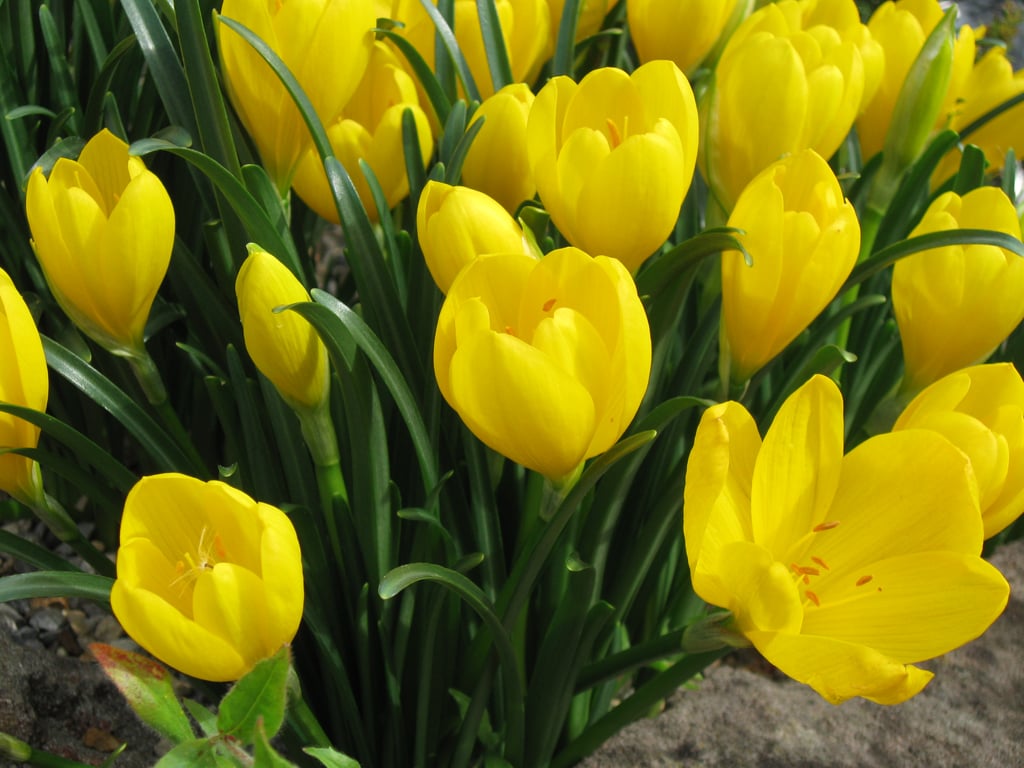Sternbergia lutea
winter daffodil
A clump-forming bulbous perennial to 15cm in height, with narrow, dark green leaves and solitary deep yellow, goblet-shaped flowers in autumn

Buy this plant
Size
Ultimate height
0.1–0.5 metresTime to ultimate height
2–5 yearsUltimate spread
0–0.1 metreGrowing conditions
Moisture
Well–drainedpH
Acid, Alkaline, NeutralColour & scent
| Stem | Flower | Foliage | Fruit | |
| Spring | ||||
|---|---|---|---|---|
| Summer | ||||
| Autumn | Yellow | Green | ||
| Winter |
Position
- Full sun
Aspect
South–facing or East–facing or West–facing
Exposure
Sheltered Hardiness
H4Botanical details
- Family
- Amaryllidaceae
- Native to GB / Ireland
- No
- Foliage
- Deciduous
- Habit
- Clump forming
- Potentially harmful
- Ornamental bulbs - not to be eaten. Wear gloves and other protective equipment when handling Pets: Ornamental bulbs - not to be eaten - see the HTA guide to potentially harmful plants for further information and useful contact numbers
- Genus
Sternbergia are bulbous perennials with linear or strap-shaped basal leaves and solitary crocus-like flowers on leafless stems in autumn, late winter or spring
- Name status
Correct
- Plant range
- Mediterranean to C Asia
How to grow
Cultivation
Plant 15cm deep in late summer in any moderately fertile, sharply drained soil. Protect from excessive winter wet
Propagation
Propagate by seed, sown with moderate heat as soon as ripe. Separate offsets when dormant
Suggested planting locations and garden types
- Cottage and informal garden
- Rock garden
- Mediterranean climate plants
- Flower borders and beds
Pruning
No pruning required
Pests
May be susceptible to narcissus bulb flies, large narcissus bulb flies, and narcissus eelworms
Diseases
May be susceptible to daffodil viruses
Get involved
The RHS is the UK’s gardening charity, helping people and plants to grow - nurturing a healthier, happier world, one person and one plant at a time.